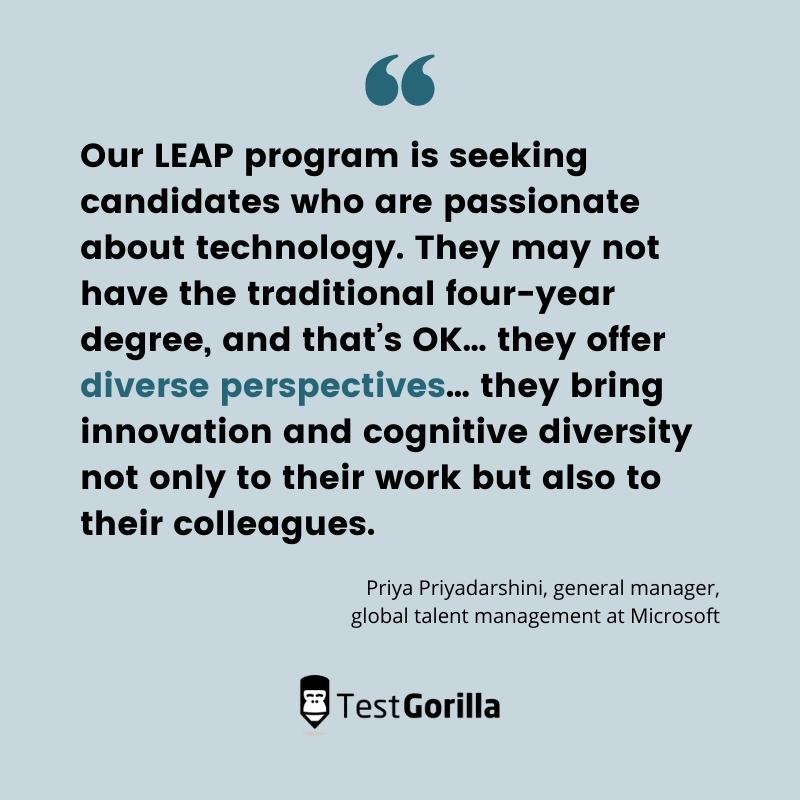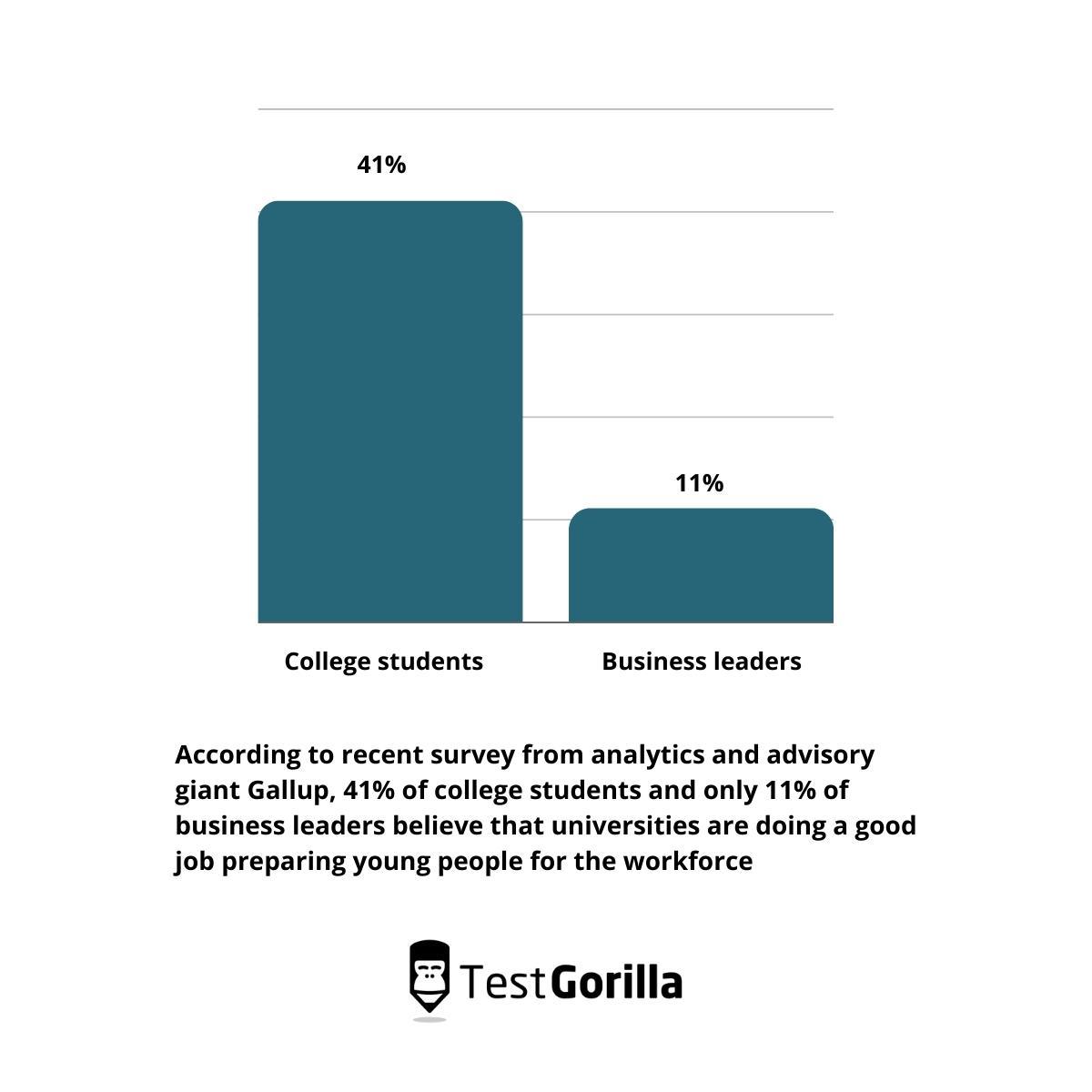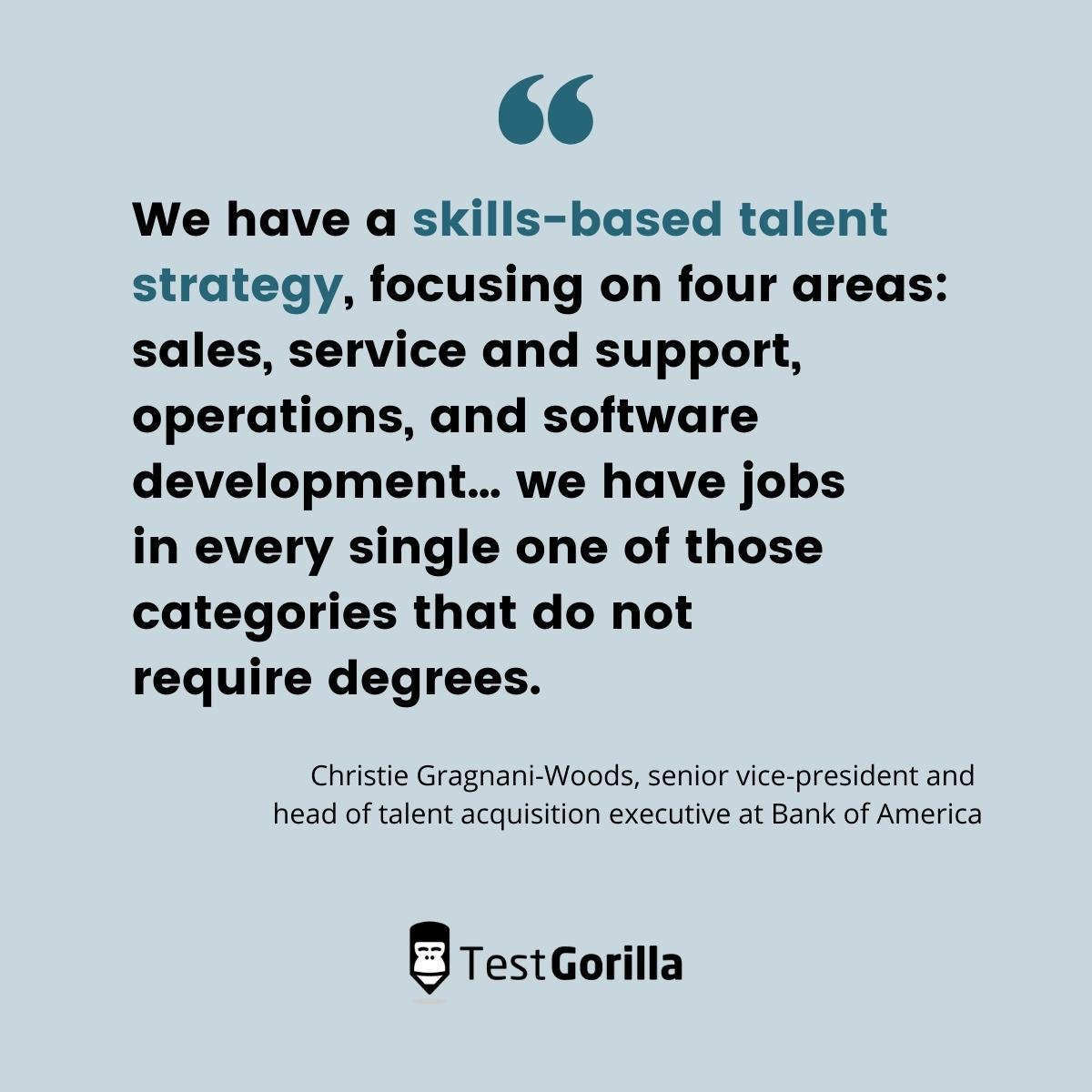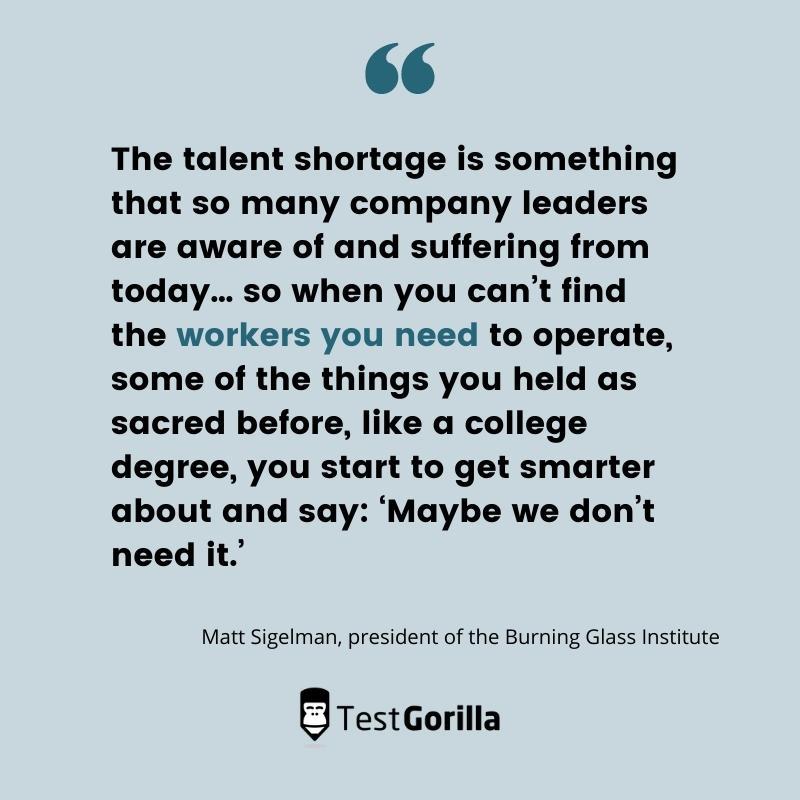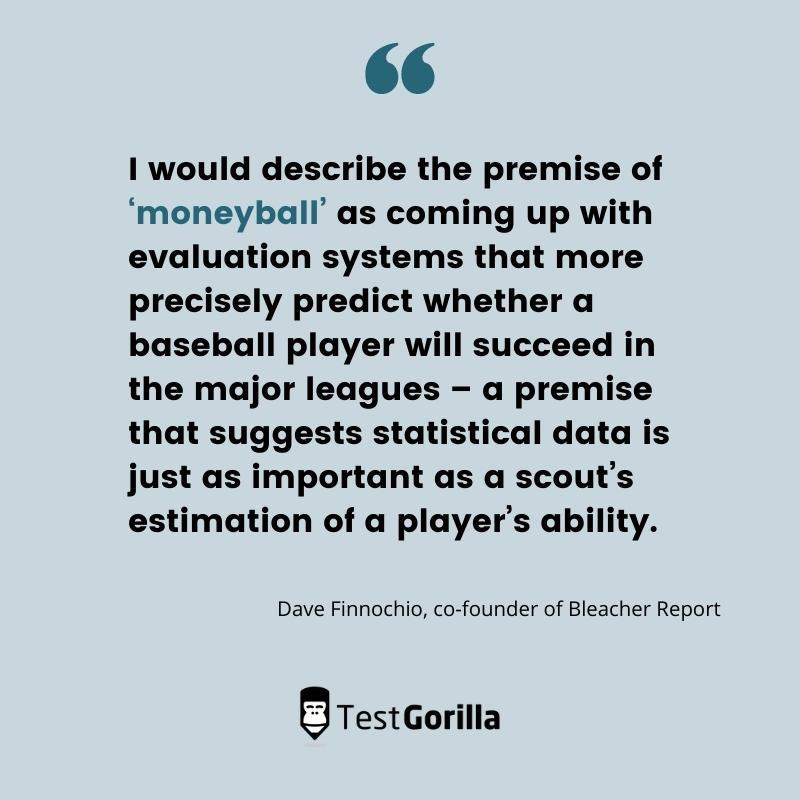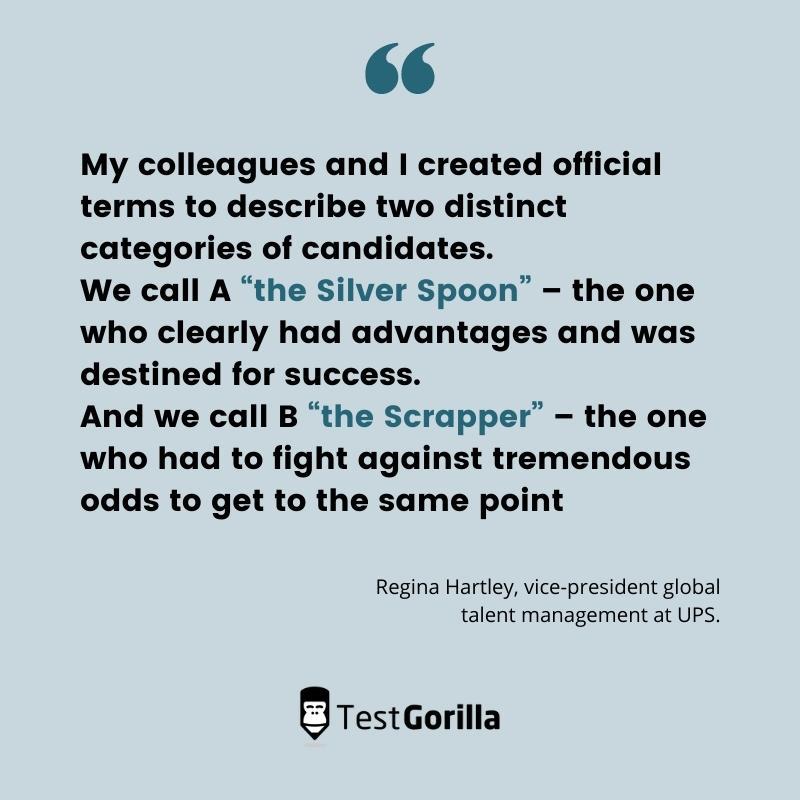There’s a seachange underway in the world of talent acquisition.
As HR teams continue to grapple with the effects of the Covid-19 pandemic, they find themselves dealing with increasingly discerning candidates who are happy to walk away from opportunities that don’t meet their expectations. Meanwhile, recent data from research and consultancy firm Gartner shows a rapid increase in the hard and soft skills required for open positions. No wonder companies face unprecedented difficulties in filling vacancies across every department.
With challenges in clear view, the question on the tip of every hiring manager’s tongue is how to prioritize skills-based hiring in a market where the most coveted prospects can command hefty salaries and signing-on fees.
Certainly, relying on traditional college-recruitment pipelines to cover the gap isn’t a viable option. Most managers admit that new graduates lack the basic technical and practical competencies to succeed in their roles. In fact, there is a growing sentiment among industry leaders that the only way to address their ever-increasing talent shortages is by completely redefining how they qualify and assess talent.
Here’s a look at some of the innovative ways that organizations have put skills at the forefront of their hiring practices.
Table of contents
Coding schools feed Microsoft’s hunger for skilled talent
Coding schools and bootcamps have become an essential source for tech talent in recent years, with 72% of hiring managers saying that these candidates make better hires than their traditionally educated counterparts.
At a time when colleges are struggling to keep up with the rapid pace of technological change in workplaces, these programs offer a focused, skills-based curriculum that promises to turn out employable candidates within months.
Organizations like Microsoft are developing these upskilling capabilities in-house. The tech giant’s LEAP program is an intensive 16-week course designed to develop unconventional talents via a combination of classroom learning and hands-on engineering projects.
Meanwhile, companies such as Adobe are working with skills-based learning providers to create alternative pathways for candidates seeking roles within their technical teams.
As corporate leaders worldwide wake up to the fact that skills matter more than experience and education, it makes sense that the investment to bridge the gap would follow closely behind.
No college degree jobs at Bank of America
Bank of America is another corporate powerhouse leading the charge toward skill-based hiring.
The company has done away with degree requirements for all entry-level positions and initiated a program to hire 10,000 candidates from low-to-moderate-income backgrounds by 2025. The business set this goal after managing to fill its initial quota of 10,000 hires within just a few years.
According to Christie Gragnani-Woods, one of the key faces behind the project, it provides a way for the bank “to go out into the community and highlight that you don’t need a degree to earn a sustainable wage and have long-term career potential.”
How think tanks are solving the global talent shortage
Founded in 2022, the Burning Glass Institute has quickly established itself as a leading authority on the future of work. The US-based research center uses a data-driven approach to find innovative solutions that help businesses create modern, future-proofed workforces.
With that in mind, it’s no surprise that the organization’s chairman, Matt Sigelman, is at the forefront of this push for skills-based hiring. According to Sigelman, some key trends explain why adopting this approach is necessary for every company.
First, most workers in the employment pool are stuck in low-wage positions with little possibility for advancement. Meanwhile, most companies are still running their hiring processes with the intention of filtering out less qualified candidates. In other words, they’re working on the principle of exclusion rather than inclusion, so many talented people who could succeed in a particular role are being ignored.
Second, the hiring process is generally conducted by HR professionals who don’t always understand the hard and soft skills needed for a particular position. In these cases, degree requirements serve as a handy shorthand to single out candidates who meet the criteria for employment. By pivoting to a skills-based hiring approach, where the competencies required for a job are clearly defined, organizations can significantly widen their talent pool and minimize the unconscious biases that stop otherwise excellent candidates from being selected.
Use data to optimize your talent acquisition strategy
For years, the world of baseball was ruled by networks of grizzled talent scouts who would judge players off the back of their physical and athletic attributes rather than their on-field performance. Unfortunately, these indicators usually resulted in a scattershot recruitment process driven more by inherent biases than objective facts.
In 2003, a former pro named Billy Beane took over the general-manager position at the struggling Oakland Athletics, a team with dwindling revenues and a shortage of talent on the roster. With limited resources, Beane shifted the organization’s scouting strategy away from pursuing big-name players on mammoth contracts toward a data-driven approach, whereby they evaluated potential recruits based on a range of statistical measures that directly correlated with success on the ball field.
The so-called moneyball approach turned the previously unfancied Oakland A’s into perennial playoff contenders and convinced other teams to bring data analysts aboard to bolster their scouting networks. As a result, it’s now the go-to method of player assessment in various sports leagues, including the NBA, NFL, and English Premier League.
It just goes to show how important it is to objectively define the skills contributing to success in each position across your organization before you even begin evaluating candidates. By assessing each job applicant based on these metrics, you can comprehensively understand their competencies and fit for a particular position.
Ultimately, a data-driven approach can help you unlock new talent pools and significantly improve your hiring success rate.
Do you know what to look for in a resume?
As someone who worked her way up the corporate ladder from humble beginnings, Regina Hartley knows firsthand that education and experience only tell part of the story when it comes to assessing job applicants.
In her Ted Talk on the topic, Hartley talks about how hiring managers are often quick to judge candidates with less-than-stellar resumes. For example, an individual who has worked a series of odd jobs over the past decade with little consistent employment might be seen as unreliable or unmotivated compared with someone who has followed a more traditional career path. But for Hartley, the same CV can show perseverance and a willingness to continue working against the odds.
It’s these individuals whom Hartley refers to as scrappers, people whose background sets them up for failure rather than success. However, she argues that the ability to deal with adversity gives these candidates the grit and work ethic to succeed in the corporate world. To prove her point, she provides the following example:
It’s these individuals whom Hartley refers to as scrappers, people whose background sets them up for failure rather than success. However, she argues that the ability to deal with adversity gives these candidates the grit and work ethic to succeed in the corporate world. To prove her point, she provides the following example:
“Take this resume. This guy’s parents give him up for adoption. He never finishes college. He job-hops quite a bit, goes on a sojourn to India for a year, and to top it off; he has dyslexia. Would you hire this guy? His name is Steve Jobs.”
She goes on to cite a study that shows a staggering 35% of entrepreneurs struggle with dyslexia. Most respondents said that dealing with this early-onset disability enabled them to become better listeners and more detail-oriented managers today. It shows that what the conventional hiring process might identify as a drawback can be a critical strength for the ideal candidate.
With skills-based hiring, recruiters and executives can tune out the noise created by flashy CVs and their own inherent biases to objectively evaluate each candidate’s potential. The result? A fairer, faster, and more effective hiring process that reveals the full depths of an applicant pool.
Related posts
Hire the best candidates with TestGorilla
Create pre-employment assessments in minutes to screen candidates, save time, and hire the best talent.
Latest posts
The best advice in pre-employment testing, in your inbox.
No spam. Unsubscribe at any time.

Hire the best. No bias. No stress.
Our screening tests identify the best candidates and make your hiring decisions faster, easier, and bias-free.
Free resources
This checklist covers key features you should look for when choosing a skills testing platform
This resource will help you develop an onboarding checklist for new hires.
How to assess your candidates' attention to detail.
Learn how to get human resources certified through HRCI or SHRM.
Learn how you can improve the level of talent at your company.
Learn how CapitalT reduced hiring bias with online skills assessments.
Learn how to make the resume process more efficient and more effective.
Improve your hiring strategy with these 7 critical recruitment metrics.
Learn how Sukhi decreased time spent reviewing resumes by 83%!
Hire more efficiently with these hacks that 99% of recruiters aren't using.
Make a business case for diversity and inclusion initiatives with this data.

